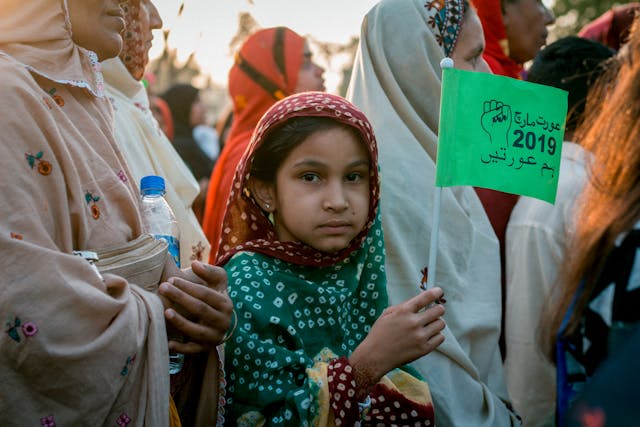Ever since its independence, Pakistan has faced immense financial challenges and problems in its economic structure, which is the reason why it felt the need to seek assistance from the International Monetary Fund (IMF) organization for the first time in 1958, merely a decade after its creation.
After its first arrangement with the IMF, Pakistan has frequently requested the organization for bailouts when faced with a financial crisis. Since 1988, a sum of 12 loans has been granted to Pakistan by the IMF as a result of each incumbent government reaching out to receive foreign aid in the wake of disrupted economic conditions in the country.
IMF: The Need of the Hour?
In the August of 2018, when Imran Khan came to power, the country was going through a severe financial crisis with its government debt totaling to a staggering 72.5% of its GDP (in 2018), and the external debt rising extensively from “99086 USD Million in the fourth quarter of 2018 to 105841 USD Million in the first quarter of 2019.” Due to large budget and trade deficits, massive government and current account deficits, and huge foreign debts, Imran Khan felt it to be the ‘need of the hour’ to request another bailout from the IMF to alleviate the economic conditions of the country and to deliver it from the chains of financial dependency and foreign debt.
On July 3, 2019, with the apparent goal of bringing a sustainable and balanced growth in Pakistan’s revenue and an increase in its per capita income, the IMF approved a 39-month extended arrangement under the Extended Fund Facility for Pakistan for an amount of US$6 billion to help reduce its economic vulnerability. However, the agreement with the IMF comes with a severe conditionality that the Pakistani government is forced to implement in its economic policymaking.
Some of the conditions include increasing taxation, curtailing the provision of subsidies, devaluation of the local currency, rise in the interest rate, and privatization of state-owned enterprises. Although they might seem to have short-run benefits, in the long run, these conditions, due to a lack of proper implementation reforms, may prove to be counterproductive for Pakistan’s economy.
Analysis of the Conditionalities of the Program
-
A Compromise on National Autonomy
The existing data on the complaints against the IMF’s implementation of its program in the developing countries in the past highlights several problems, one of them being: “The Fund’s modes of operation and inflexibility in negotiations infringe the sovereignty of states and alienate governments from the measures they are supposed to implement; there is an increasing overlap with the World Bank, and between them that they are apt to swamp governments with policy conditions.”
Therefore, the IMF packages, due to their rigid conditions and strategies, in the past, have failed to provide sustainable economic stability in Pakistan due to “exogenous shocks” (unanticipated floods, hike in oil prices, civil war, etc.) or a lack of “political will” of the government to alter certain economic policies or both.
-
Devaluation of Pakistani Rupee
The bailout program aims at creating a steady growth in the revenue and tackles it by demanding the country’s government to increase taxation, reduce subsidies, and set up a ‘market-determined’ value of the Pakistani currency. Because of this certain alteration, “the rupee has lost over half its value since December 2017, resulting in the inflation rate reaching a five-year high at 9.4 per cent in April, and expected to rise to over 13 per cent, as per the Fund’s forecast.”
In the past instances of the Fund implementing similar policies in the developing countries, “it has resulted in losses of output and employment, by further impoverishing the poor.”
-
Inflation, Unemployment, and Economic Slowdown
The IMF package of 2019 mentions the need for an increase in fiscal tightening and revenue mobilization, which will lead to a burgeoning economy. However, this is noticed to have been accompanied by an escalation in indirect taxation, an increase in tariffs, interest rate hike, and an immense rise in the prices of oil and gas as a result of weak structural reforms. To meet the revenue demands of the IMF, the government presented a very harsh budget in June 2019.
Addressing this issue, an editorial published on June 13, 2019, exclaimed, “The budget may help reduce the imbalances in the economy in a way to put a smile on the face of the IMF, but the people of Pakistan have very little to cheer about…. Having made the choice to let Pakistanis feel the pain first, the government has asked they make a large sacrifice for the sake of the macroeconomic health of the state.”
Hence, the policies introduced by the government to satisfy the IMF demands, due to a lack of long-term vision for fiscal adjustments, simultaneously cause an increase in price hikes, unemployment, inflation, and a slowing down of economic growth. Although these reforms do favor the economy temporarily, overall, their above implications adversely affect the wellbeing of the general public in a broader perspective.
Final Verdict – Is IMF a Suitable Option for Economic Growth in the Long-run?
In conclusion, the IMF bailouts seemingly work for an increase in the self-reliance of a country, but for Pakistan, they have found out to act in such a way to increase the economic dependence of the country on this international organization. Hence the reason why Pakistan feels the need to take loans from the IMF every few years.
For the most part, this is because of the inability of the sitting governments in the past and the present to introduce dynamic structural reforms aimed at tackling the existing economic issues of the country in the long run instead of relying on financial aid from the IMF, and introducing policies which only cater to the demands of the IMF directed at temporary solutions.
There is no denying that the financial aid from the IMF does mitigate the economic crisis prevailing in the country, but its constructive effects are so short-lived that they need to be honed by a pragmatic policy making body in the government that assembles and regulates reformations which ensure economic stability in the long run.







3 thoughts on “The IMF Invasion: Contextualization in the Long-run”
A wonderful article with in depth knowledge.
Thank you for the kind remarks, Emad!
Pingback: Interests before Interactions: A Political Critique of Foreign Aid - Effective Thoughts